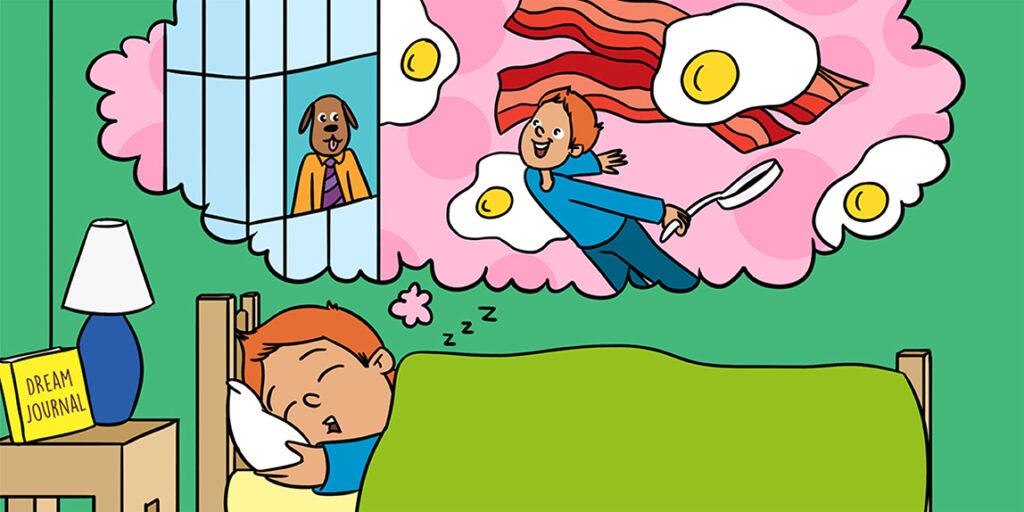“Sleep and Dreaming” is a fascinating exploration of the complex and mysterious phenomena of sleep and dreams.
Through scientific research and psychological insights, this topic delves into the various stages of sleep, the functions of dreaming, and the significance of sleep for overall well-being. Understanding sleep patterns, dream content, and the potential benefits of quality sleep can contribute to improved mental and physical health.
Exploring the intricacies of sleep and dreaming opens up new avenues for comprehending the human mind and its connection to the subconscious realm.

Sleep is a natural and essential part of life. We spend about one-third of our lives asleep, and it is a time when the body and mind can rest and rejuvenate.
Sleep is important for physical health, mental health, and cognitive functioning. Moreover, sleep connects with dreams—phenomena that researchers have studied for centuries, finding them mysterious and captivating.
In this article, we will explore the science of sleep and dreaming, and how they are related.
What is Sleep?
Sleep is a natural state of rest that is characterized by a reduction in consciousness and a decrease in physical activity. During sleep, the body undergoes important restorative processes, including tissue repair, hormone regulation, and immune system functioning.
Sleep is also important for cognitive functioning, including memory consolidation, learning, and creativity.
There are two main types of sleep: non-REM sleep and REM sleep. Slow brain waves define non-REM sleep, which divides into three stages, with stage 3 representing the deepest sleep.
Contrastingly, REM sleep stands out due to rapid eye movements and the presence of vivid dreams. In this state, heightened brain activity connects with the processing of emotional information.
What are Dreams?
Dreams are subjective experiences that occur during REM sleep. Dreams can be vivid and surreal and can involve a wide range of experiences, including sensations, emotions, and thoughts.
The study of dreams has been the subject of interest for centuries and has been the focus of many scientific and philosophical debates.
Various factors, such as emotional states, past experiences, and memories, can influence dreams.
Some theories suggest that dreams are a way for the brain to process and consolidate memories, while others suggest that dreams are a way for the brain to simulate experiences and prepare for future events.
The Science
The science of sleep and dreaming has been the subject of extensive research over the past several decades. Studies have shown that sleep is important for physical health, mental health, and cognitive functioning.
Inadequate sleep connects to a range of health problems, including obesity, diabetes, heart disease, and mental disorders.
Research has also shown that sleep is important for memory consolidation and learning. During sleep, the brain processes and consolidates new information, which is important for the retention of long-term memories.
The study of dreaming has also revealed important insights into the functioning of the brain. Research has shown that dreams are associated with increased brain activity in the emotional and sensory processing areas of the brain. Dreams can also be influenced by external stimuli, such as sounds or temperature changes.
The Relationship between Sleep and Dreaming
Sleep and dreaming are closely related, and both are important for physical health, mental health, and cognitive functioning. Particularly crucial for dreaming, REM sleep correlates with heightened brain activity and the processing of emotional information.
Research has also shown that sleep deprivation can affect dreaming. Sleep-deprived people exhibit fewer, less vivid, and more negative dreams, as indicated by studies. This suggests that adequate sleep is important for the generation and quality of dreams.
Additionally, some studies have suggested that dreams may be a way for the brain to process and consolidate emotional experiences.
Studies indicate that individuals who’ve undergone trauma often experience heightened, vivid dreams connected to the event. This suggests that dreams may play a role in the processing and healing of emotional experiences.
Conclusion
Sleep and dreaming are essential aspects of human life. Sleep is vital for physical and mental health, and dreaming remains a captivating enigma studied for centuries.
The study of sleep and dreaming unveils brain function insights and significant implications for memory, emotion, and consciousness. 카지노사이트
Be First to Comment